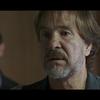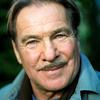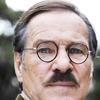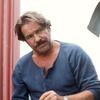Götz George
Biography
show more...
Götz George, born in Berlin in 1938, is the son of the famous actor Heinrich George and his wife, the actress Berta Drews. After first appearances on the stage of Berlin's Hebbel Theater during his childhood, Götz George was trained as an actor by the reknowned teacher Else Bongers. At the age of 15, Götz George started his career as a movie actor. In 1960 he received his first major award (the Bundesfilmpreis) for his appearance in the film JACQUELINE (directed by Wolfgang Liebeneiner), followed by the German Critics Award in 1961. A year later he received the public „Bambi“-award as the most popular German actor.Between 1959 and 1969 Götz George appeared in 26 cinema features, among them KIRMES (directed by Wolfgang Staudte), DAS MÄDCHEN UND DER STAATSANWALT (director Jürgen Goslar), LIEBE WILL GELERNT SEIN (director Kurt Hoffmann), SIE NANNTEN IHN GRINGO/ MAN CALLED GRINGO (director Roy Rowland) and OSTWIND/ EAST WIND/ LE VENT D´EST (director Jean-Luc Godard). George's next movie production was AUS EINEM DEUTSCHEN LEBEN/ DEATH IS MY TRADE , directed by Theodor Kotulla, in 1977, where he gave a highly praised performance as the KZ commander Rudolf Höss. The movies ABWÄRTS/OUT OF ORDER in 1984 and ZAHN UM ZAHN/SCENE OF THE CRIME: A TOOTH FOR A TOOTH in 1985 (the latter based on the TV-series SCHIMANSKI ) were both successful at the box office and among critics. In 1985, George received the German Cinema Award (Charlie-Chaplin-Schuh) and the Gold Ribbon (Bundesfilmpreis) as best German movie actor. After starring in ZABOU/THE CRACK CONNECTION in 1987 (another SCHIMANSKI -adaption for cinema) and the action thriller DIE KATZE/THE CAT in 1988, Götz George appeared in DER BRUCH , the first East-West-German co-production for cinema, directed by Frank Beyer in 1988. The location of his next film was Argentina, where he starred in the movie BLAUÄUGIG/BLUE-EYED , produced in 1989 under the direction of Reinhard Hauff. In 1991 George played a lead role in Helmut Dietl's comedy SCHTONK , a big success in Germany among audience and critics, and official German nomination for the Oscar. For this performance, George again received the Gold Ribbon (Bundesfilmpreis) as best actor. Perhaps his most prominent achievement, however, was the role of the serial killer Fritz Haarmann in Romuald Karmakar's movie DER TOTMACHER/DEATHMAKER , for which he received the Coppa Volpi, the actor's award of the Venice Film Festival in 1995 and, once more, the Gold Ribbon (Bundesfilmpreis) in 1996. In the same year he again appeared in another highly successful film by Helmut Dietl, ROSSINI.
In early 1997, George starred in the movie DAS TRIO/THE TRIO , directed by Hermine Huntgeburth, and during the last two months he was filming the thriller SOLO FÜR KLARINETTE/SOLO FOR CLARINET , directed by Nico Hofmann, a movie adaption of the successful novel by Elsa Lewin. In summer of 1998, Götz George starred as Josef Mengele in Roland Suso Richter's film AFTER THE TRUTH / NICHTS ALS DIE WAHRHEIT . In 2000 he played the advertiser Eddie Kaminski in the feature film COMMERCIAL MAN, directed by Lars Kraume, in GOTT IST TOT (2001) the cranky Heinrich (written and directed by Kadir Sözen) and 2004/05 the designer Jost in MARIA AN CALLAS (written and directed by Petra K. Wagner). 2008 he is Schlomo Herzl in MEIN KAMPF after Tabori (director: Urs Odermatt). 2011 he plays the chancellor Olbrich (Olli) Ebert in ZETTL, directed by Helmut Dietl.
During the seventies, Götz George worked for television and theatre. Among others, notable stage appearances were in TROILUS UND CRESSIDA (as Troilus), in MARTIN LUTHER UND THOMAS MÜNZER (as Luther), in ENDSTATION SEHNSUCHT (A STREETCAR NAMED DESIRE - as Kowalski), in DANTONS TOD DANTON'S DEATH - as Danton) and in PLATONOW (as Platonow).
Though Götz George has been a popular German movie actor for four decades, he gained his perhaps most unique popularity for the impersonation of the police detective Horst Schimanski in the TATORT/SCENE OF THE CRIME TV-series from 1981 to 1991. Aside from their success in Germany, the SCHIMANSKI films have introduced George to TV-audiences worldwide: 427 million people have watched so far. Moreover, George's appearances in numerous other successful TV features have made him the most well-known and mostly decorated German actor of our time. After a six-year-intermission, SCHIMANSKI returned to German tv-screens in the end of 1997 and has been continued since. Other succesful tv-appearances include SCHULZ & SCHULZ (1989-93), DAS SCHWEIN/THE SWINE (1994), DER SANDMANN (1995), and DIE BUBI SCHOLZ STORY (1997). In 1999 Götz George was shooting for the tv feature film DIE SPUR MEINER TOCHTER in Marocco. The year 2001 began with two further SCHIMANSKI movies and was closed with shoots for the tv movie LIEBE. MACHT. BLIND. in South Africa. The TV features LIEBE IST DIE HALBE MIETE and VINZENZ & CLAIRE followed in 2001, along with the suspense-packed film GEHEIMNISVOLLE FREUNDINNEN , filmed by the young director Oliver Elias. 2003 and 2004 followed BLATT & BLÜTE (director: Michael Kreindl), ALPENGLÜHEN I+II (director: Hajo Gies) and EINMAL SO, WIE ICH WILL (director: Vivian Naefe).
George's participation in the screening of Schiller's INTRIGUE AND LOVE , directed by Leander Haussmann, drew him closer to his theatrical past; a stark contrast to his impersonation of a union official in the tv feature ALS DER FREMDE KAM , another collaboration with Andreas Kleinert (2005).
In 2006/2007 George starred in DER NOVEMBERMANN (director: Jobst Oetzmann), which premiered at the Munich Film Fest 2007, in THE CAT (director: Kaspar Heidelbach), first shown at the Filmfest Hamburg 2007, and in MEINE FREMDE TOCHTER (director: Manfred Stelzer). He made SCHIMANSKI – SCHICHT IM SCHACHT (director: Thomas Jauch) and the comedy LÜG WEITER, LIEBLING (director: Gabriela Zerhau) in 2008. The following year saw the making of tv movies ZIVILCOURAGE (director: Dror Zahavi) and PAPA ALLEIN ZU HAUSE (director: Vivian Naefe). Another episode of his long-standing Schimanski series, SCHULD UND SÜHNE (director: Thomas Jauch) followed in 2010. In 2011 he is filming the tv play BLINDER SPIEGEL (director: Andreas Kleinert), in 2012 TOD EINER POLIZISTIN (Matti Geschonneck) and the movie about his father GEORGE (Regie: Joachim Lang).
In 2002 Götz George played one of the leads in the tv movie MEIN VATER/COMING HOME , which received the Emmy Award for best foreign feature fim in 2003.
In 2001 Götz George was awarded with the „Goldene Feder“, he received the National German TV Award in 2007 and the „Platin Romy“ in 2009, both for his lifetime achievement , and he was given the DIVA “Movie Merit Award” in 2010 and in 2013, again for his lifetime achievement, the Award of the German Actors Union. The same year, he received the National German TV Award together with his brother Jan and the director Joachim Lang for the docu drama GEORGE, in 2014 the drama got the "Gold World Medal".
Publications
Theatre Directing
1990
Platonov (Anton Tschechow)
(name part)
Theater-Fernseh-Produktion
dir.: Helmut Stauss/Götz George
1986/87
The Revisor (Gogol)
(name part)
Berliner Tournee
dir.: George/Eberhard Feik/Helmut Stauss
tour
1973
Match
(Andre)
Kleines Theater im Zoo
dir.: Götz George
Frankfurt a.M.





